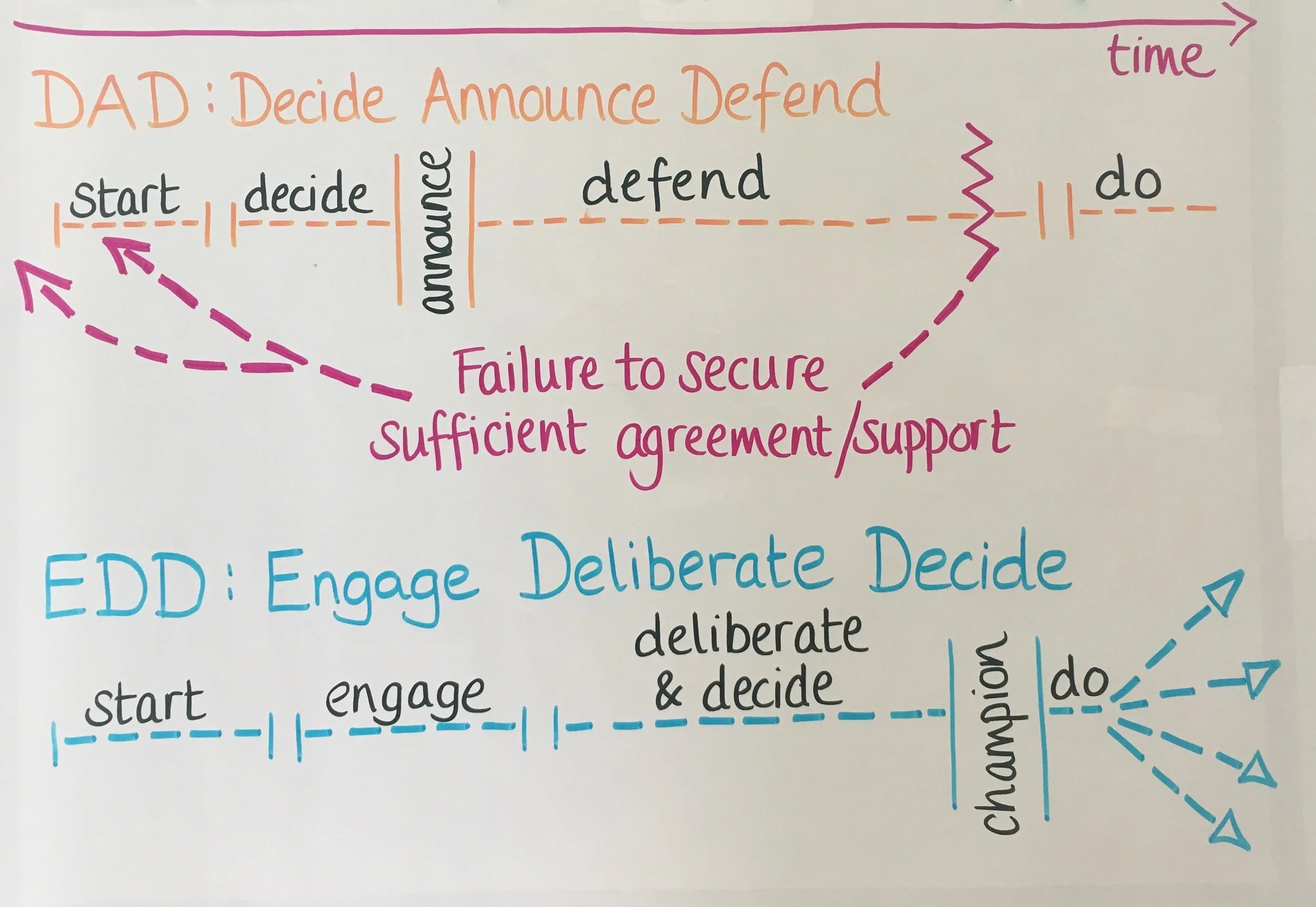Pie Chart: Lindsey Colbourne
Not negotiable - At the start of your engagement process it is likely that what's decided (and thus not negotiable) may be at the level of overall objectives, and timescales. For example, a Government department may have a policy objective and a legal deadline to meet. A local council may know that it wants to revamp a local park, and have a potential funding source whose criteria it needs to meet.
Negotiable - You may have some existing preferences, ideas or initiatives which have been piloted and could be rolled out. There may be some technical information which will inform the decision or be used to assess options. There may be criteria which you are bound to, or want to use, but haven't yet applied to the options.
Open - There will be aspects of the decision which you have no preference about and where the decisions can in effect (even if not in law or within your organisation's own rules) be delegated to others.
Remember that you will also have decided-negotiable-open aspects to your engagement process - the people you talk to, the points at which you engage them, the methods and channels which are used.
The conversation you have internally with your team about what goes in each slice of the pie can often be dramatically useful: flushing out assumptions which have hitherto been hidden, and exposing disagreements within the team in the safety of your planning conversations rather than in the less forgiving gaze of stakeholders.
The pie slices shift over time
At the start of the process, it's likely that the 'decided' slice is slimmer than the other two. As the process unfolds, things usually shift from 'open' to 'negotiable' and from 'negotiable' to 'decided'. Principles and assessment criteria get agreed. Ways of working are negotiated. Working groups or consultation processes are established. Exploratory conversations crystalise into options which get fleshed out and then assessed. Some options get discarded and others emerge as front-runners.
Sometimes, things can move in the other direction: when opposition is so strong that you have to think again, or when new information emerges which shows that ways forward which had seemed marginal are now much more likely to work. In extreme circumstances, this may lead to the initiative being abandoned altogether. The debacle over England's publicly-owned forests is an example of this.
Tell people what's 'up for grabs'
There's no point asking people what you should do about something if you have already made up your mind.
By all means ask for feedback which will help you communicate your decisions more clearly. Understanding people's concerns and aspirations means you can address them directly in your explanations about why you have made a particular decision and how to expect to implement and review it.
Do people the simple courtesy of letting them know which aspects of situation you are most keen to get their feedback and ideas about - which information will most helpful in informing the decision, the dilemmas you'd like to think through with them, the innovative ideas you'd like to test out.
That way, everyone's time is spent where it can make the most difference.
Simples.
Thanks to...
Acknowledgements to Lindsey Colbourne and others at the late lamented Sustainable Development Commission, InterAct Networks, Sciencewise-ERC and the Environment Agency who have been developing and working with this framework over the last few years.


